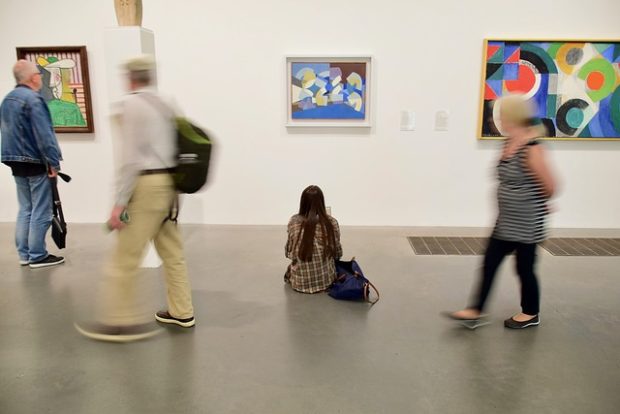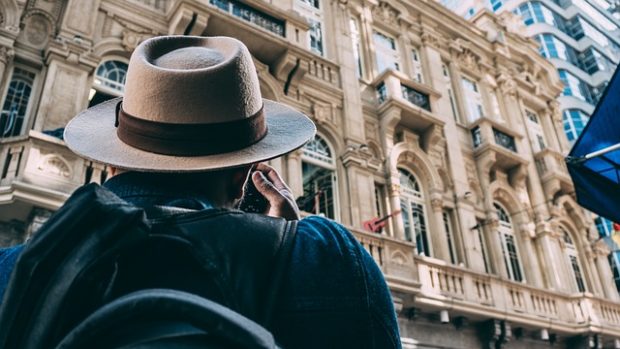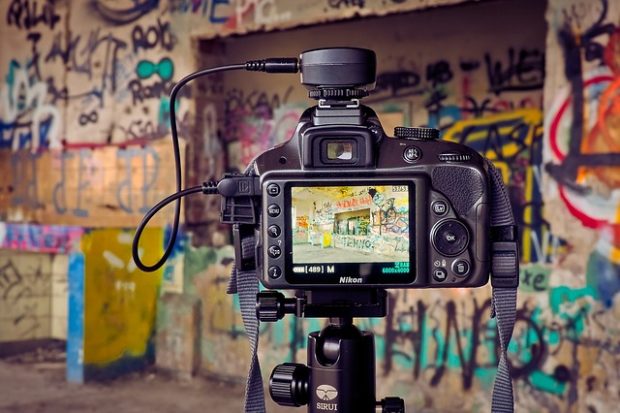Many people get into photography because they enjoy taking pictures of their family and friends. After catching the photography bug, they want to try taking pictures of other things too, but they soon discover that it isn’t as easy as it looks.
Taking interesting, impactful pictures of artwork and architecture can be especially challenging.
If you want to expand your photography talents and get into taking pictures of art and architecture, follow these tips and you’ll capture the unique beauty and personality of these static objects.
Choose the Right Bag
The last thing on your mind when taking a great shot of the local museum is the bag you put your camera in, but it is an important consideration. It can make taking photos easier and more comfortable. ShotKit recommends asking if the bag is, “a regular backpack with a camera insert, for example, or has it been designed from the start as a dslr camera backpack?”

A bag that is designed for cameras will have room for all your equipment, so you can tow it along with you when you’re out taking shots, but it also has another benefit.
Museums can be very picky about what is allowed inside. Some museums will even want to go through your bag. With a dedicated camera bag, looking inside it is quick and easy, and it shows museum staff that you’re there to take pictures—not cause trouble.
Skip the Flash
Natural light is one of the best ways to get fantastic shots. It’s fantastic for portrait photography, but it’s also great for artwork and architectural photography.
When it comes museum works of art, they may not allow flash photography indoors. That’s because prolonged exposure to harsh flashes of light can ruin important works of art. Get used to taking pictures of artwork without it.

The details of architecture can only be fully illuminated by natural light, so there’s no need for a flash there either. Even at night, it’s much better to play with the surrounding light sources that it is to use your own flash.
Think Crisp, Clean, and Clear
You want your subject to appear full of life. That is hard to do when artwork and architecture are inherently lifeless. In order to get the best shot, you have to focus on the basics, which means keeping things crisp, clean, and clear.
Using a tripod can ensure the camera is steady, so there are no blurry or fuzzy edges when taking pictures of a detailed piece of artwork.

Don’t forget to keep the lenses of your camera clean and clear! Use an approved cleaner and lens-safe cloth to clean away any dust or smudges that could compromise your image.
Take a Different Point of View
Taking a picture of a picture can leave you with a flat looking image, and architecture can appear dull and lifeless, even if you don’t use a flash and keep your lens clean. If your images are underwhelming, it’s time to start looking at the world from a different point of view.
Instead of approaching the subject head-on, try taking a different perspective:
- Shoot from a low angle
- Get up high and shoot your subject from above
- Widen the angle and add other details to your shot
- Take a picture of a reflection
- Shoot through an object, like a fence
It’s all about practicing creativity. It is often the angles that seem the silliest to bystanders that end up producing the best images.
Know When to Go
If your subject is artwork or architecture, the last thing you want to do is show up with a crowd. Consider going during unpopular times. For example, the museum will be less busy on a Monday morning than a Saturday afternoon. Avoid foot traffic outside buildings by going out on a gloomy day.
When it comes to museums, there are plenty of surprising rules to follow. The rules are especially important to follow if you’re taking pictures. That’s why it’s such a good idea to avoid crowds if you’re taking pictures. That way, you don’t have to worry about blocking anyone else’s view in an attempt to get the perfect shot.
If you’re into photography, you know that taking pictures means more than pointing and shooting. How you take pictures depends on the subjects you’re shooting. If those subjects include artwork and architecture, the tips on this list will help you take lively, interesting photos of things that are traditionally difficult to capture.
